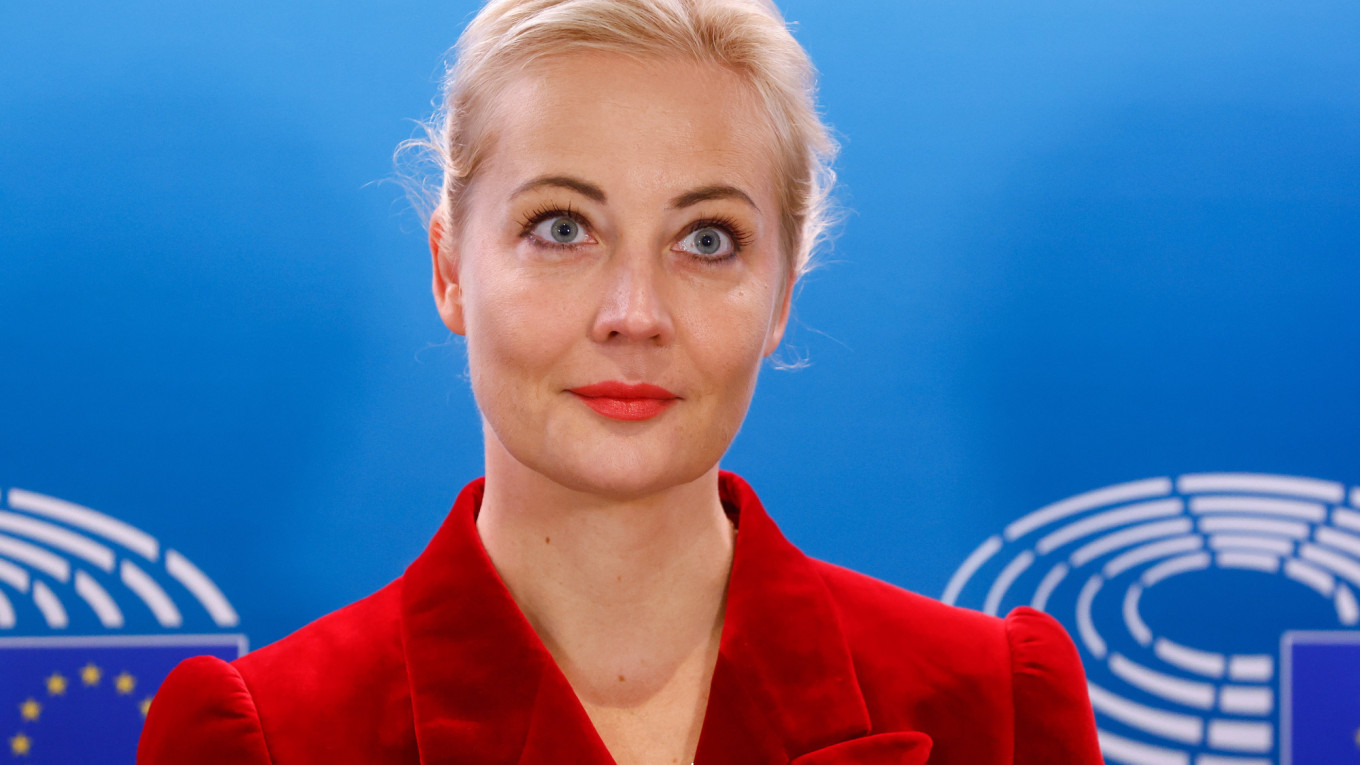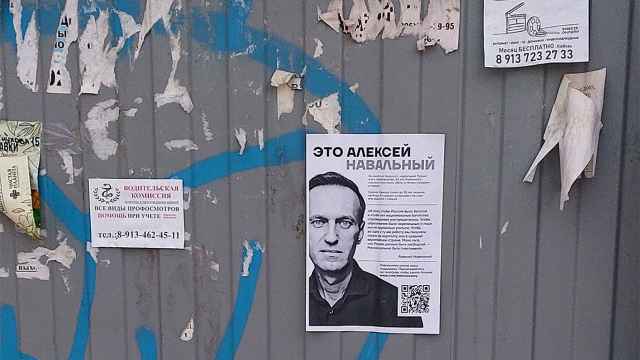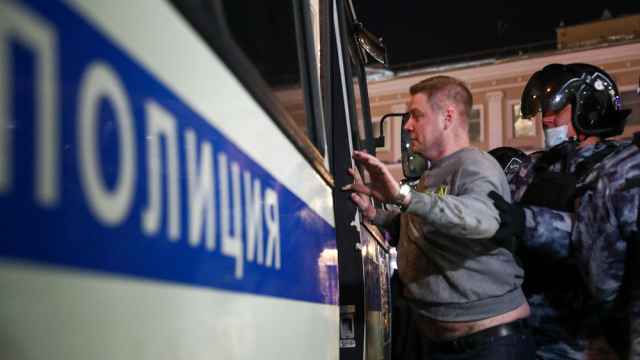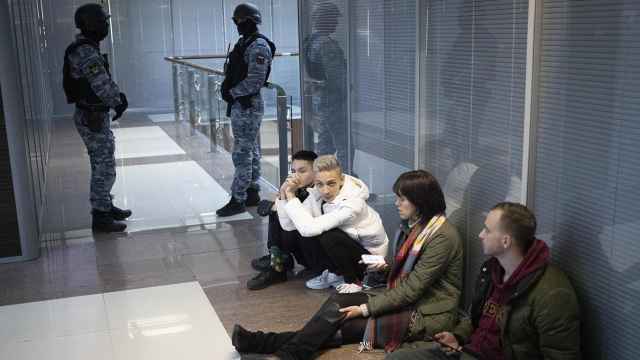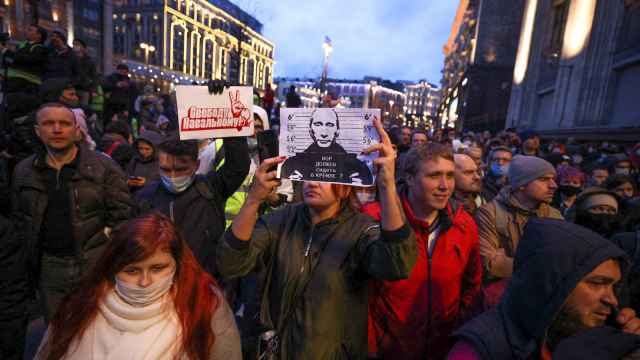“I will continue the work of Alexei Navalny. I will continue to fight for our country.”
That was the message Navalny’s widow Yulia Navalnaya delivered in a video address viewed by millions on Monday after the death of her husband, one of the Kremlin’s most fearless opponents, in prison.
For many anti-Kremlin Russians still mourning their movement’s most charismatic figurehead at a time when President Vladimir Putin is expected to win re-election next month, Navalnaya’s statement has been a source of relief.
“I want to be with you because I know that you have lost no less than I have,” Navalnaya, who had previously rejected calls to enter politics, told the audience.
Navalnaya, 47, was seen by experts as having little choice but to step into a political role after his death, “whether she wanted it or not."
Yet with Russia’s opposition largely in exile or in prison, she faces a challenging road ahead.
Over the years, Navalnaya acted as a devoted wife and mother, supporting Navalny behind the scenes and appearing with him at rallies and protests.
When her husband was nearly killed in an August 2020 Novichok poisoning attack, she played an instrumental role in securing his evacuation to Germany and helping the politician recover.
“Yulia, you saved me,” said Navalny after he regained consciousness. “I know for sure simply from my own experience: love heals and brings you back to life.”
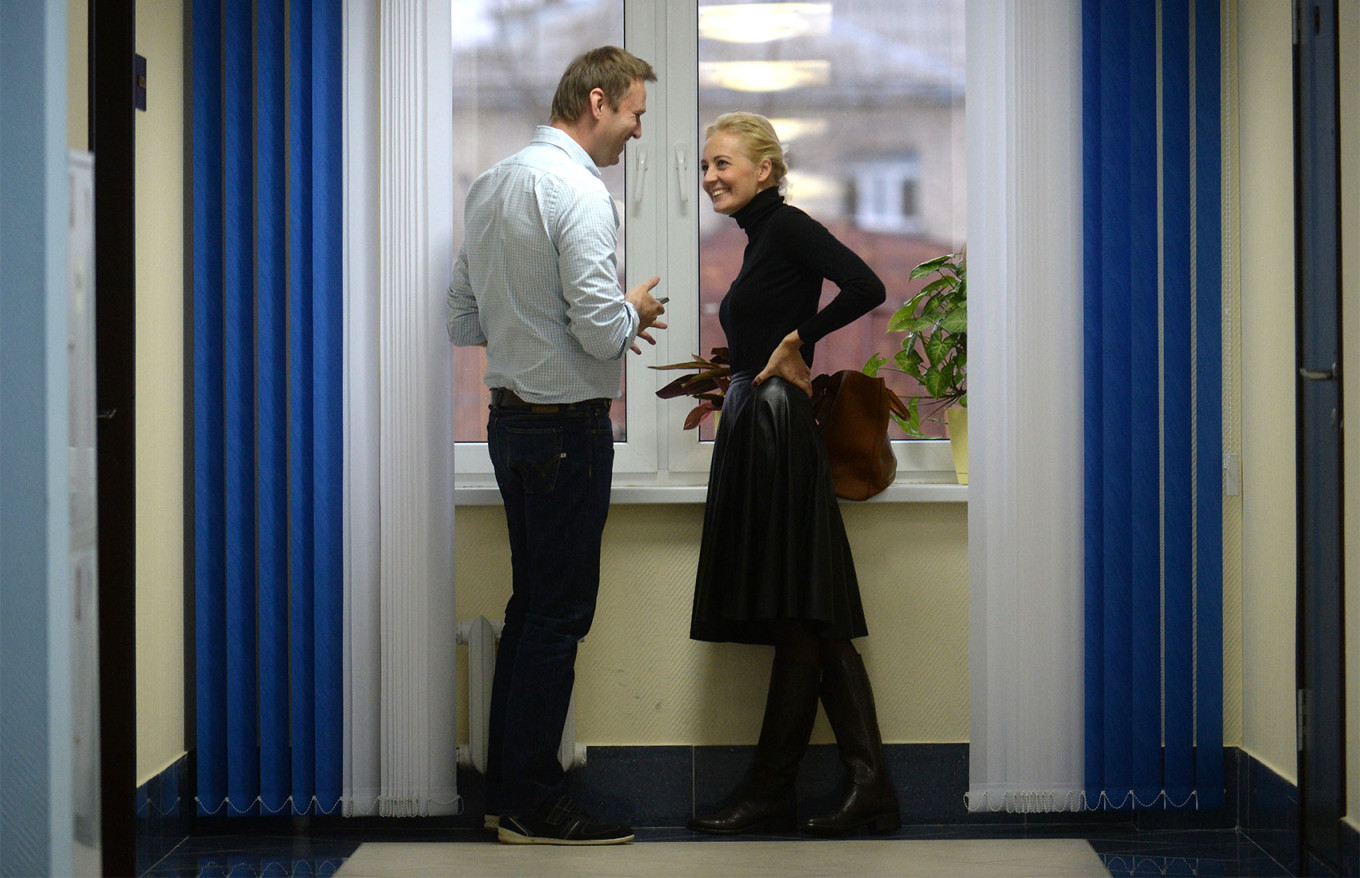
An economist by training, Navalnaya married the up-and-coming opposition figure in 2000 and later became a full-time mother of daughter Daria and son Zakhar.
As Navalny’s political profile rose, with campaigns for the 2013 Moscow mayoral election and the 2018 presidential election, Navalnaya stood by his side, even being described as “the first lady of the opposition.”
“It’s much more interesting to be a politician’s wife,” she said in a rare interview with Harper’s Bazaar in 2021, adding that she saw “her task” as taking care of the family.
At the same time, Navalnaya has said she shares her husband’s political views, with her husband also describing her political stance as “more radical than his.”
“Navalny the politician is two people: Yulia and Alexei,” Russian journalist Yevgenia Albats, a friend of the family, once said. “She’s his editor-in-chief, she reads everything he writes before it’s published.”
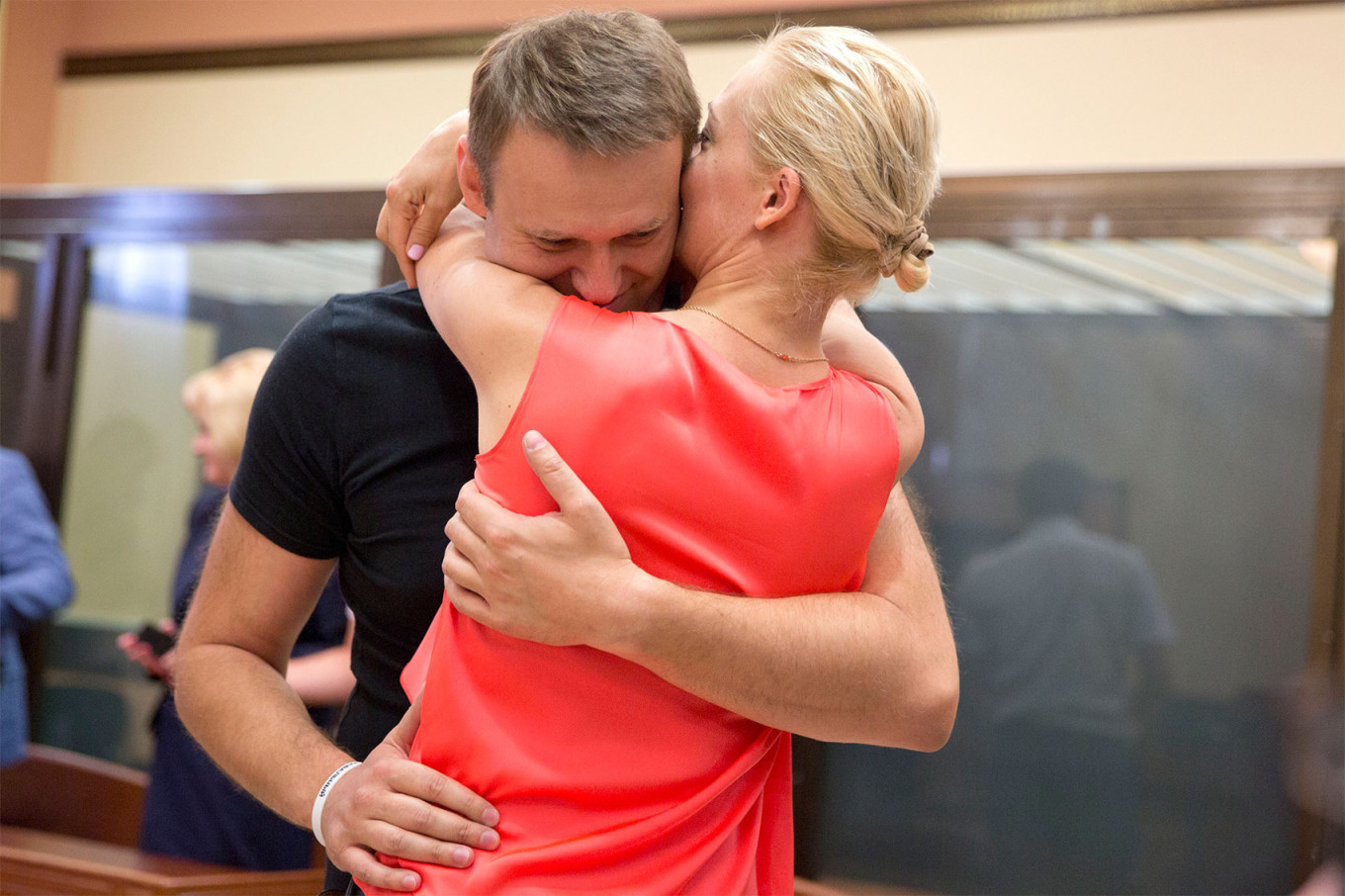
Three days after Navalny’s death in a remote, austere Arctic prison, she announced her intention to continue her husband’s work, saying that she “has no right to give up” after “Vladimir Putin killed my husband Alexei Navalny.”
As someone entering politics during extraordinary circumstances, she has significant potential, said political scientist Abbas Gallyamov.
“Her motivation is remarkably straightforward and understandable. After her husband was killed, literally tortured, what else could she do?” Gallyamov told The Moscow Times.
“She was not a political figure at all and now she is entering politics, so to speak, by force. People are used to the fact that politicians are often dishonest, but she does not have that negative background,” Gallyamov said.
Hours after the announcement of Navalny’s death on Friday, she delivered a speech at the Munich Security Conference and met with exiled Belarusian opposition leader Sviatlana Tsikhanouskaya.
Many have compared Navalnaya to Tsikhanouskaya, who launched a formidable challenge to President Alexander Lukashenko in the 2020 Belarusian election after her husband Sergei Tsikhanouskiy was jailed.
This comparison could be a political “trap” for Navalnaya, political expert Tatiana Stanovaya said on her Telegram channel.
“Tsikhanouskaya had enormous success as Lukashenko's main opponent in the last presidential elections, but she failed to become a significant opposition figure in exile,” Stanovaya said.
“The same risk awaits Yulia: they [politicians] will meet with her, give honors, but she may never become a player, not having serious support within the country,” Stanovaya said, but noted that “a lot depends on what she offers” as a politician.
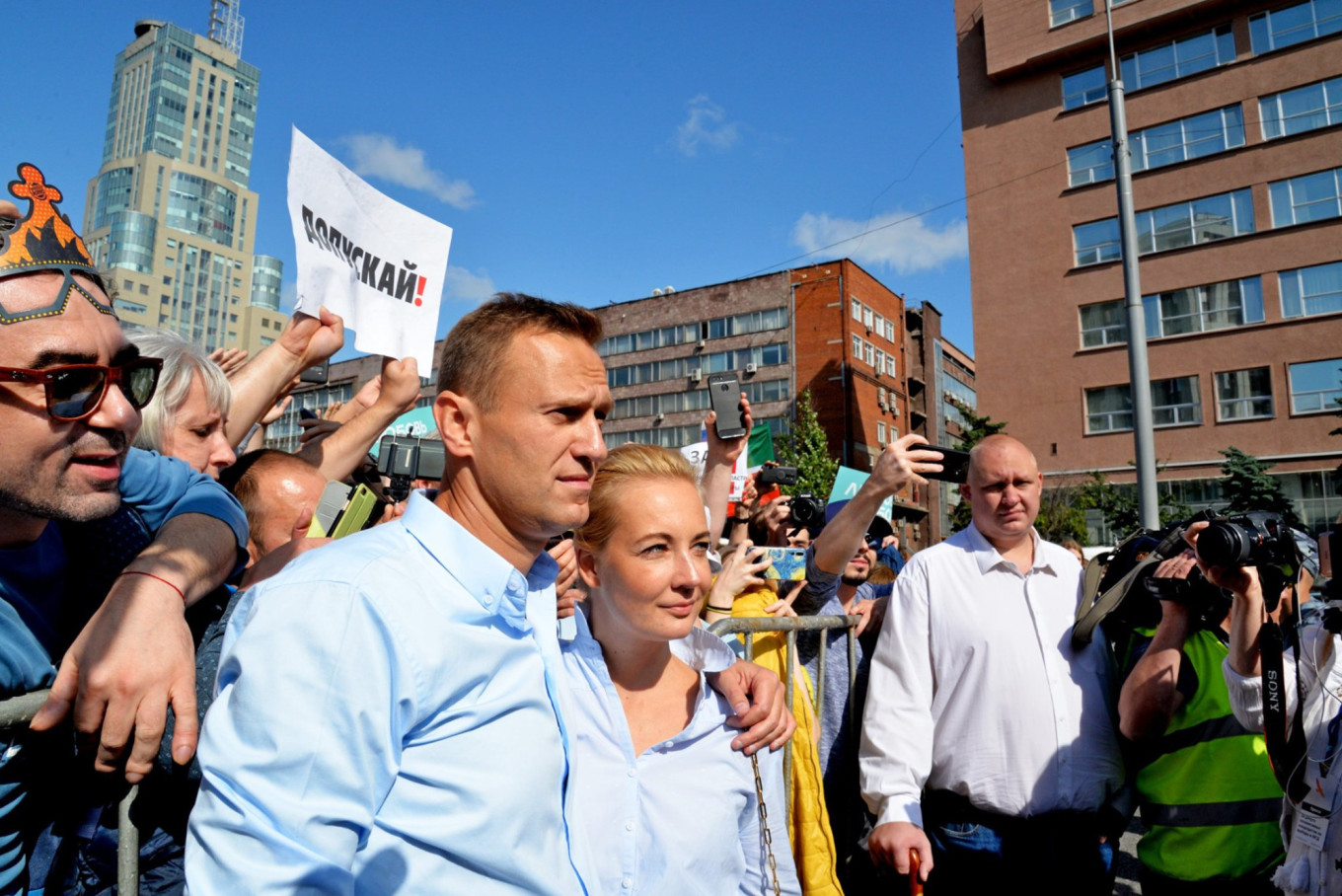
On Monday, Navalnaya met in Brussels with European Union leaders, including European Council President Charles Michel, and proposed a number of concrete measures against the current political regime in Russia.
She called on Europe to reject the legitimacy of the March Russian presidential election results, intensify sanctions on Putin's inner circle and create a support system for Russians who have had to flee the country due to persecution.
“Instead of making statements, we must act,” she told EU leaders on Monday.
“Let's not promise the impossible and let's not discuss something for years. Let's act."
Several Russian opposition figures — like exiled politicians Dmitry Gudkov and Maxim Katz — have already voiced their support for Navalnaya and her intention to continue her husband’s work.
“If she has made this decision, I decided for myself that I am ready to help,” Gudkov, who knows Navalnaya personally, told The Moscow Times during a phone interview.
“In my opinion, we should act together, coordinate. What happens next will depend, among other things, on her steps and actions, but it's clear she has fame, reputation, she has everything,” he added.
According to expert Gallyamov, Navalnaya has a rare opportunity to consolidate the fragmented opposition movement.
“It will be difficult for them to criticize her — I think the majority will be favorable, given the tragic situation that forced her to enter [politics],” Gallyamov said.
Because she has stayed out of the spotlight, Navalnaya also lacks the past controversial statements that kept many from throwing their full support behind her husband.
U.S. political scientist and philosopher Francis Fukuyama, who is also a member of the advisory board for Navalny’s Anti-Corruption Foundation, also suggested Navalnaya “can take up the torch.”
But beyond finding her place in politics, Navalnaya must also face a sophisticated propaganda machine that has targeted her and her family for years.
Kremlin spokesman Dmitry Peskov on Tuesday called her accusations that Putin was behind her husband's death “unfounded and vulgar.”
While trolls on social media have proliferated unfounded rumors that she had love affairs while her husband was in prison, state-run TV raised an eyebrow at her appearance at the Munich Security Conference soon after her husband's death.
“Two hours after the news of her husband’s death, the wife emerged wearing makeup…not even the mascara had run... [She’s] smiling and speaking at the press conference,” the editor-in-chief of the Kremlin-funded broadcaster RT, Margarita Simonyan said in reaction to Navalnaya’s speech in Munich.
Simonyan added that Navalnaya “did not love her husband very much, but press conferences with the authorities and everything connected with it — [she loves] very much.”
While Russians have yet to see Navalnaya's first moves in politics, the announcement of her intention to continue her husband’s work has been met with some hope for changes among his supporters.
“Thank you, Yulia,” people wrote in comments on Navalnaya’s social media accounts.
“We are with you.”
A Message from The Moscow Times:
Dear readers,
We are facing unprecedented challenges. Russia's Prosecutor General's Office has designated The Moscow Times as an "undesirable" organization, criminalizing our work and putting our staff at risk of prosecution. This follows our earlier unjust labeling as a "foreign agent."
These actions are direct attempts to silence independent journalism in Russia. The authorities claim our work "discredits the decisions of the Russian leadership." We see things differently: we strive to provide accurate, unbiased reporting on Russia.
We, the journalists of The Moscow Times, refuse to be silenced. But to continue our work, we need your help.
Your support, no matter how small, makes a world of difference. If you can, please support us monthly starting from just $2. It's quick to set up, and every contribution makes a significant impact.
By supporting The Moscow Times, you're defending open, independent journalism in the face of repression. Thank you for standing with us.
Remind me later.



